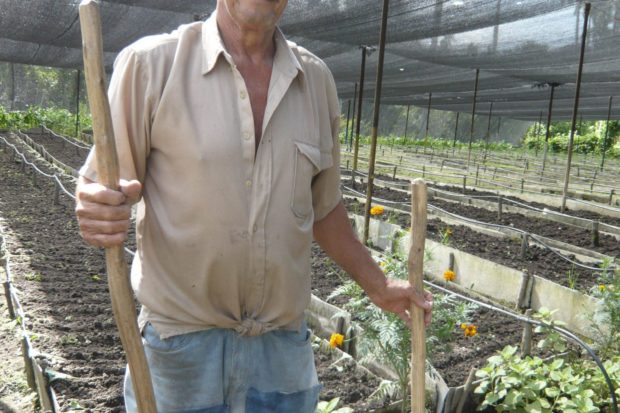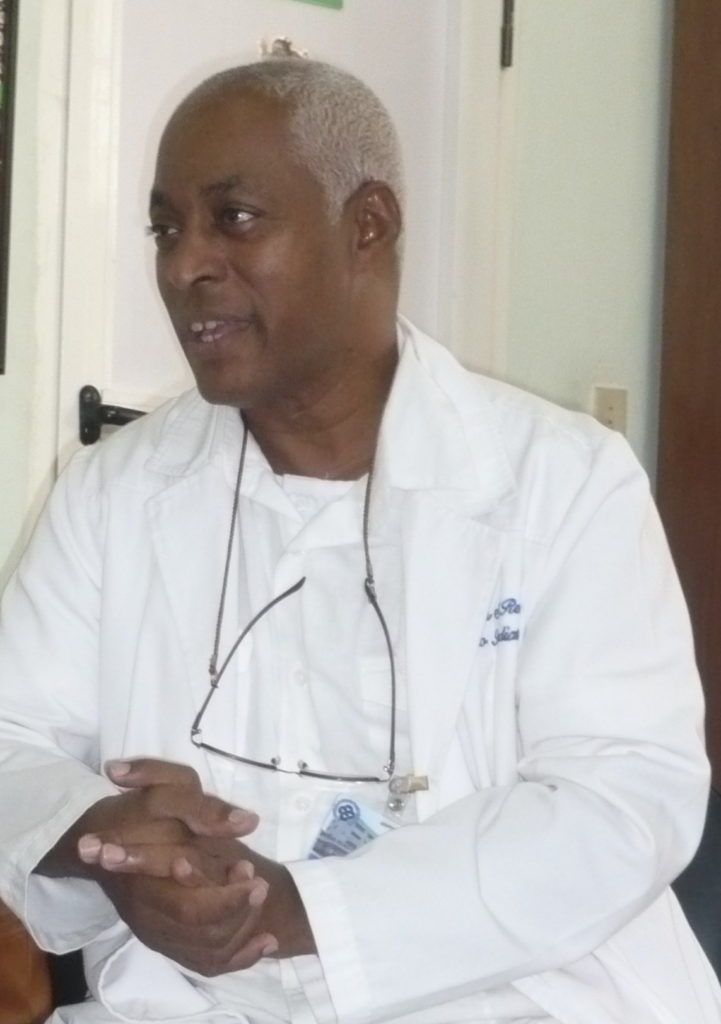
By Leni Reeves
The basic concept of siege warfare is to surround a civilian population that has been designated “the enemy” and to prevent supplies, especially of food, from getting in until starvation compels surrender. That is the essence of what the United States calls “embargo” in the case of Cuba and “sanctions” in the case of Venezuela.

Dr Jesus de los Santos Renó Céspedes, head of Pediatric Oncology at the National Institute of Oncology and Radiation Therapy in Havana. He talked about the difficulties imposed by the blockade and about his patients. Photo by Leni Reeves
Does it work?
Yes, it causes suffering. In the case of Cuba, where the blockade has been in place since 1960, it has become clear that the Cuban people are not going to give up their independence, so that is all that it has accomplished.
It is better now than in the 1990s; adults no longer have to go hungry to feed their children. Adults lost an average of 18–20 pounds during that period.
It’s better now, but more than 80% of all medicines and medical devices are under U.S. patent. So there are children with leukemia, a disease that kills if it is not treated, who can’t get the best medicines. There are old people waiting for pacemakers that can’t be imported because the company that makes them has a U.S. subsidiary that doesn’t want its assets confiscated by the U.S. government. There are so many instances in the medical field; I could go on and on with examples.
Less dramatic, but constant, there are daily shortages and problems in people’s everyday lives that are meant to wear them down, make them give up (which is what the blockade is about), try to starve people and grind them down until they give up their revolution and agree to be exploited by the U.S. and multinational corporations like most of the rest of the world.
At the beginning of May, the Trump administration intensified the blockade by activating Title III of the Helms Burton Act, which has been suspended since its passage (as it was felt to be counter to U.S. interests) and is a violation of international law. Title III provides that anyone whose property was nationalized after the 1959 Cuban Revolution, even if they were not U.S. citizens at the time, can sue any individual or company profiting from their former holdings.
It is intended to prevent international investment in Cuba by giving the former owners of property nationalized in Cuba the right to sue in U.S. courts anyone in any way associated with that property. The idea is to tighten the blockade of Cuba and to pressure other countries, such as Spain, to support anything the United States wants to do in Venezuela.
The United States continues to try to overthrow the elected government of Venezuela by destabilizing the economy and proclaiming a new president on the basis of pure fantasy. U.S. economic sanctions have caused the death of more than 40,000 people in Venezuela since 2017, according to a new report by the Center for Economic and Policy Research co-authored by economists Jeffrey Sachs and Mark Weisbrot.
The report examines how U.S. sanctions have reduced the availability of food and medicine in Venezuela and increased disease and mortality. These sanctions were first put in place in December 2014.
As Cuban hero Rene Gonzalez said, “We’re not dealing with Obama or Trump, or Kennedy or Nixon. We’re dealing with an empire. It has sought to swallow us up for more than 200 years. And it will continue trying to do so.” He was referring specifically to Cuba, but it is applicable to Latin America as a whole.
U.S. National Security Adviser John Bolton said, “The Monroe Doctrine is alive and well.” He was referring to the self-proclaimed imperialist doctrine that somehow gives the United States the “right” to control the hemisphere and appropriate the land, resources and lives of others. By violence, if necessary, but isn’t siege warfare a particularly cruel form of violence?
*****
Leni Reeves is a local physician and activist. Contact her at lenivreeves@gmail.com.
*The information for this article’s photos was mistakenly interchanged in the print issue of Community Alliance. The Community Alliance regrets the error and any inconvenience it may have caused.
